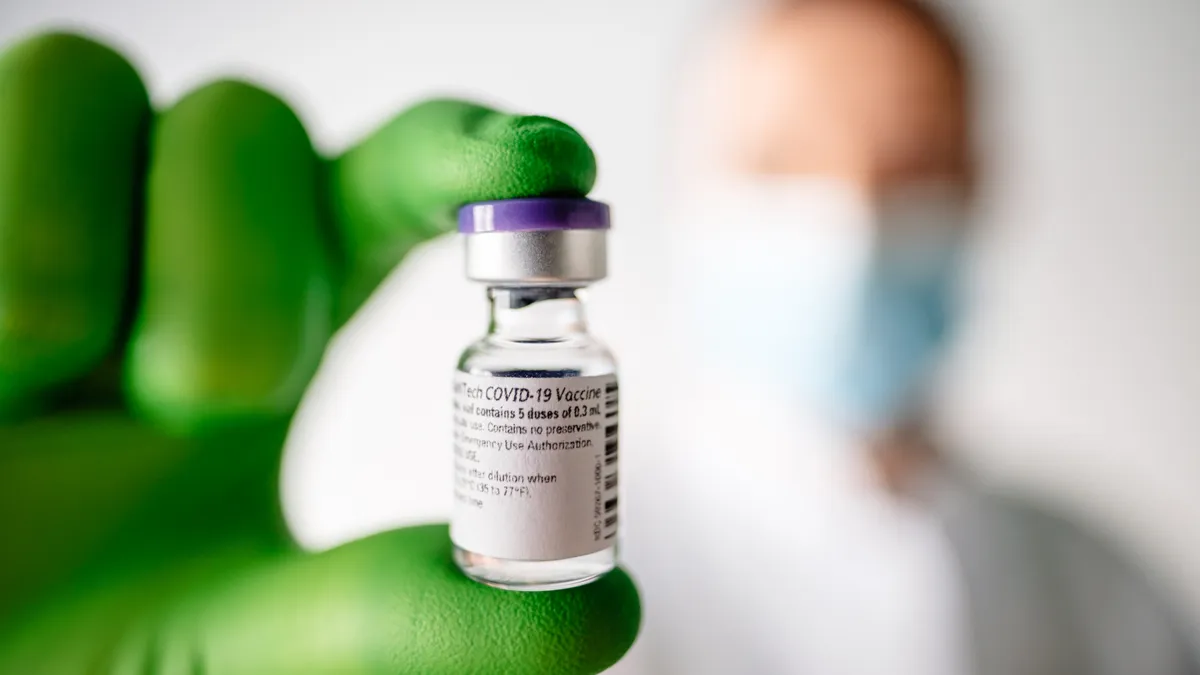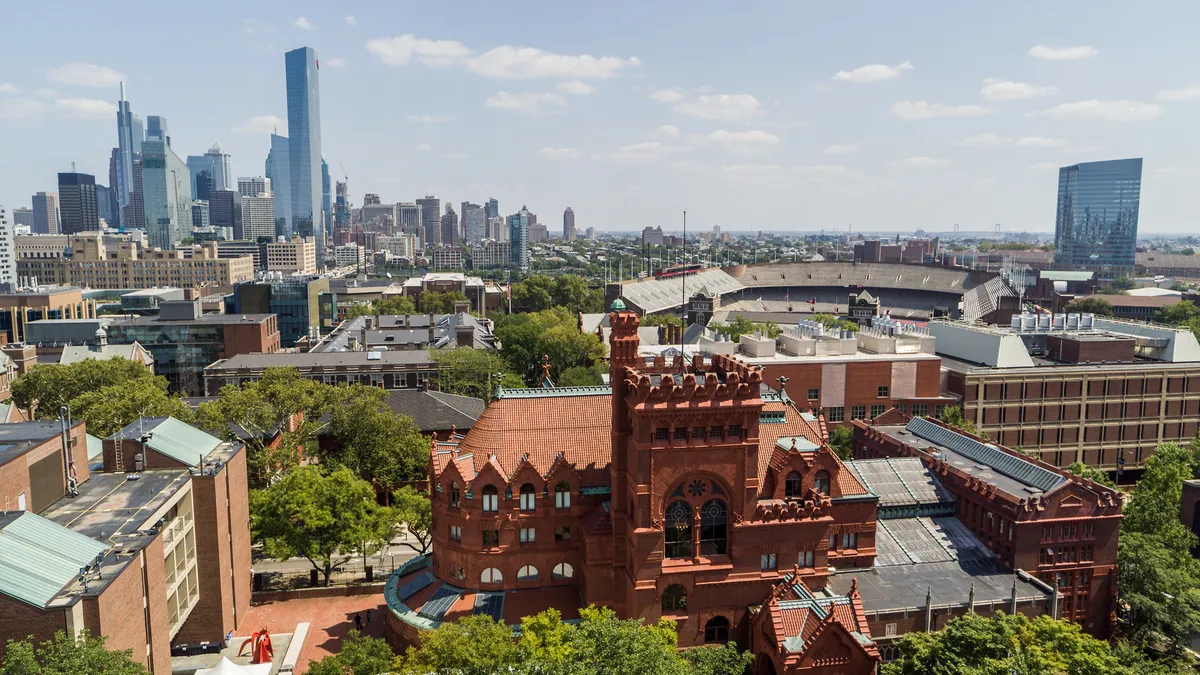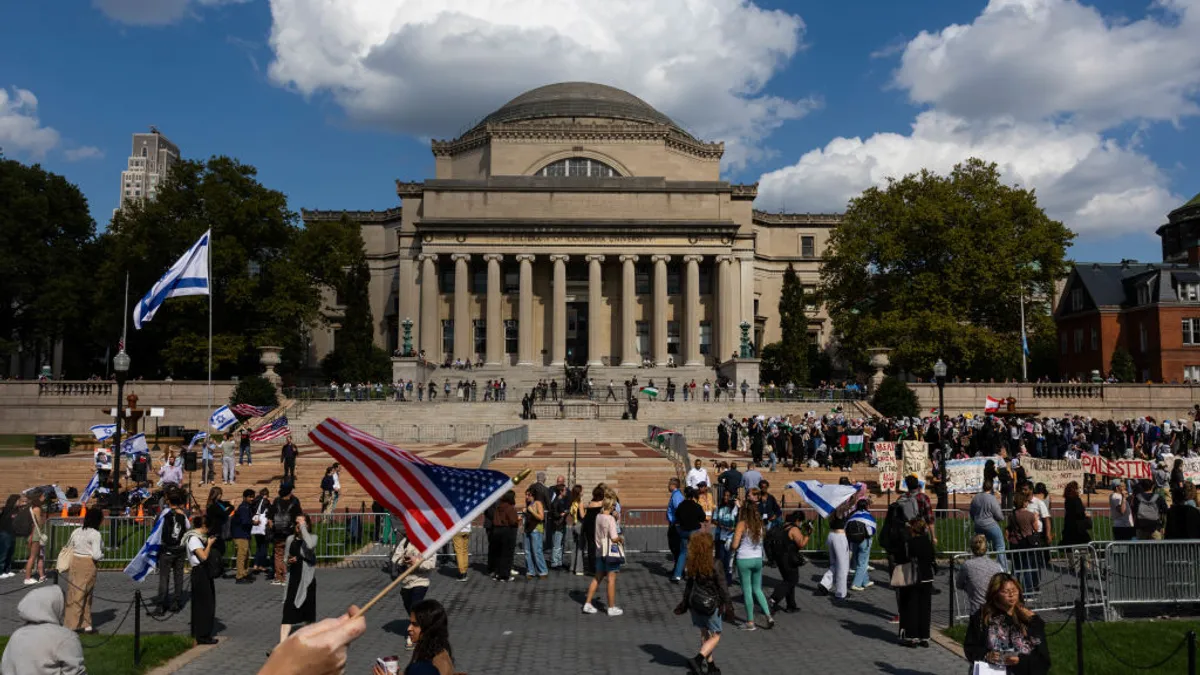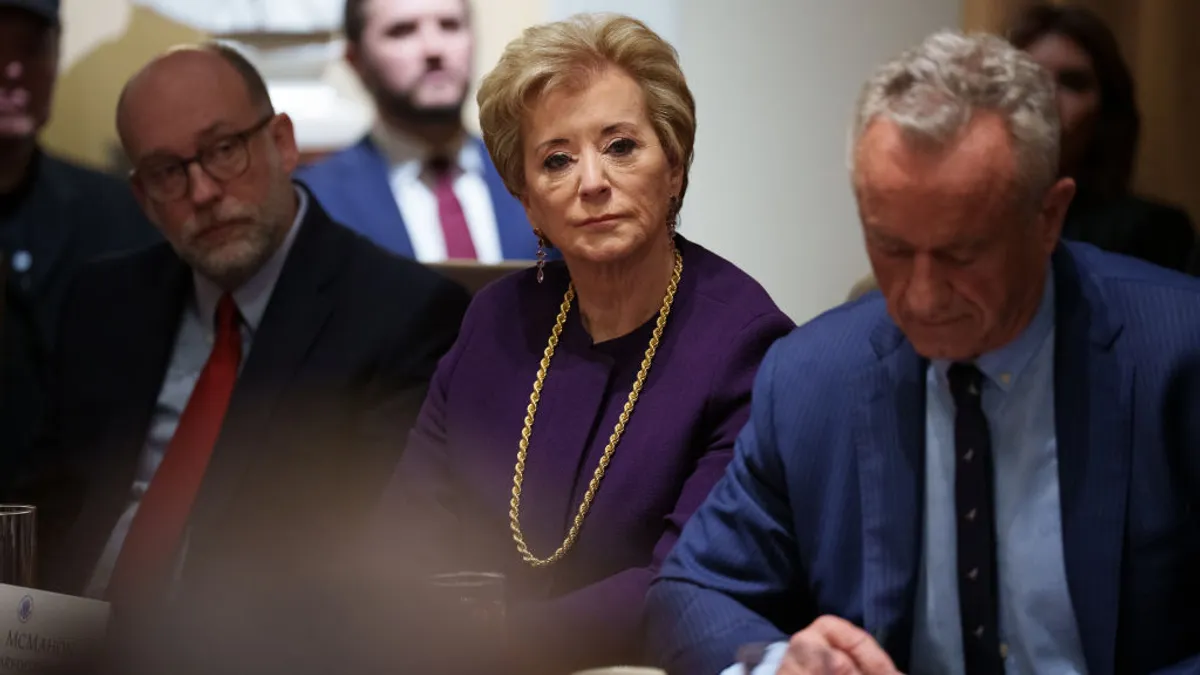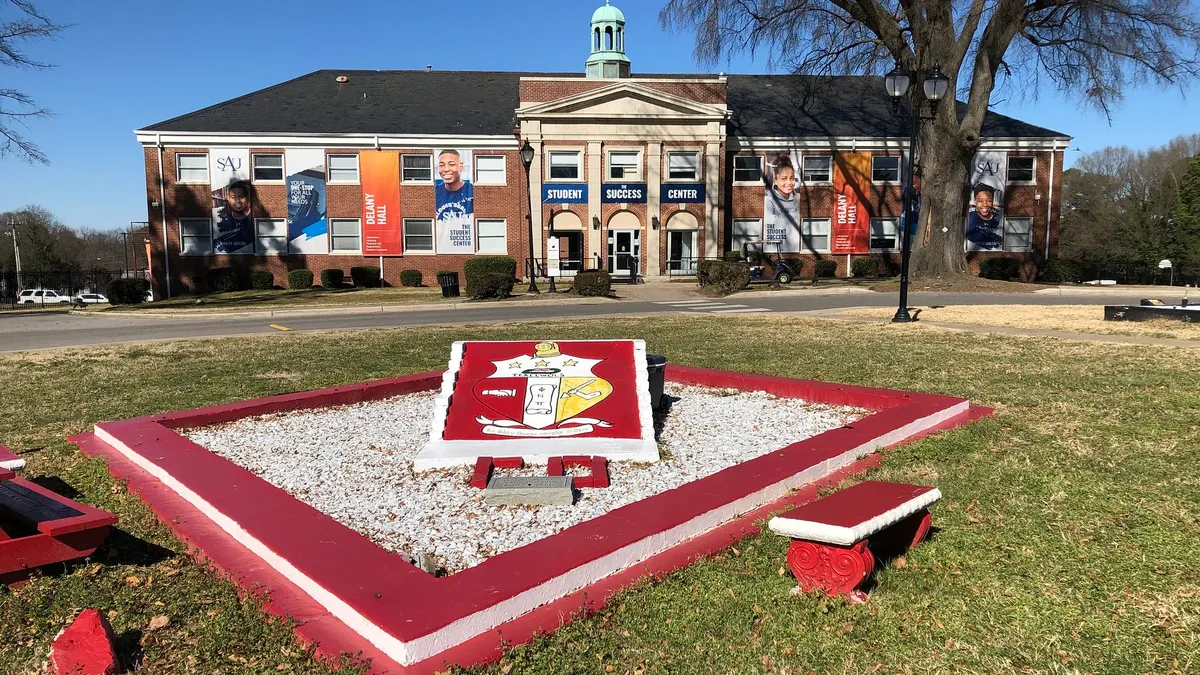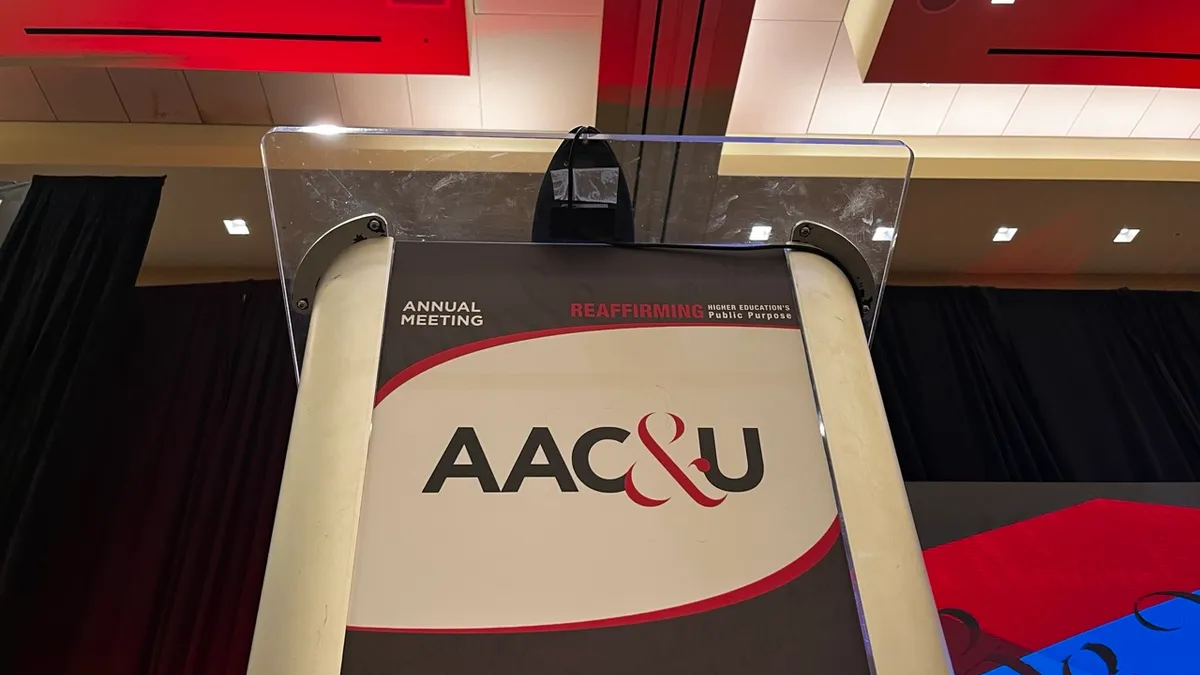The first coronavirus vaccines are being distributed in the U.S. after the U.S. Food and Drug Administration on Friday gave emergency authorization to Pfizer's version. It's a critical step in the fight against the pathogen — one public health officials hope will stem its spread.
Colleges shouldn't expect immediate reprieve, however. Early doses are being administered mostly to healthcare workers and nursing home residents. Still, the availability of a vaccine is already informing colleges' plans for future terms. The California State University system cited progress toward a vaccine as one reason it anticipates having mostly in-person classes next fall. It appears to be the first to publicly announce its plans.
But questions remain: When will most students and employees be able to get vaccinated? Can colleges require it at this point? What kind of safety protocols are necessary in the meantime? Does the arrival of a vaccine give colleges a reasonable benchmark for spring and fall planning?
To begin to get answers, Higher Ed Dive talked with public health and legal experts and consulted published guidance for vaccine distribution. We also looked at how colleges are helping out. Here's what we found.
When will most students and employees be able to get a vaccine?
College students and faculty members, in general, are not expected to be at the front of the line for the vaccination.
The Centers for Disease Control and Prevention earlier this month recommended that healthcare workers and people in long-term care facilities get the vaccine first, given their high exposure to the virus. Other frontline workers and high-risk individuals are expected to be prioritized as more vaccines are available.
However, the organization noted, "demand is expected to exceed supply during the first months" of nationwide vaccinations. That should ease as more doses are manufactured and other vaccines are authorized.
While federal entities like the CDC set national priorities for who should get the vaccine and in what order, it's up to the states to determine how it is distributed.
Several states have included college students among the groups they think should be prioritized in getting the vaccine. Some campus workers, such as those in healthcare roles, rank higher on their lists. And already, many university-affiliated healthcare workers have or are slated to receive vaccines from the initial distribution.
But estimates suggest the shots won't be widely accessible to the public until at least late spring.
The widespread availability of a vaccine is critical to many colleges' plans to fully reopen campuses. Catherine Troisi, an infectious disease epidemiologist at the University of Texas Health Science Center at Houston School of Public Health, expects the earliest that would happen is next fall.
"It depends on uptake of the vaccine," Troisi said.
Can colleges require students and employees to get it?
The speed under which the vaccines were developed, and the Pfizer version was approved, have some people leery of getting them. There's also some hesitation in communities that have historically had reason to not trust medical science and the government, Troisi said.
Recent polls show at least 60% of respondents would receive a coronavirus vaccine. This leaves a large chunk of the U.S. population uninoculated, complicating the goal of achieving herd immunity. Additionally, people under age 16 can't get Pfizer's shot. (Pfizer's is the only one authorized in the U.S., although others are being tested and reviewed.)
Many states have laws requiring students to get certain vaccinations before being allowed on campus. These generally apply to all institutions, though some only pertain to public colleges. Colleges can also individually require them.
But it may be awhile before schools will mandate the coronavirus vaccination. Pfizer's vaccine was approved under an emergency-use designation, and other coronavirus vaccines are expected to get a similar label at first. Requiring people to get a vaccine with an emergency use authorization has never been litigated, meaning colleges may be wary of doing so until the FDA fully approves a vaccine and they're on firmer legal ground, said Robert Field, a law and public health professor at Drexel University, in Pennsylvania.
Private institutions will have the most latitude mandating a vaccine, barring exceptions for students with disabilities or religious exemptions, said Scott Schneider, a higher education law specialist and partner in the Austin, Texas, branch of law firm Husch Blackwell.
Schneider believes public colleges also could demand their campus populations receive the vaccine without fear of a court challenge. He cited a U.S. Supreme Court case, Zucht v. King (1922), that found a Texas K-12 school district could constitutionally prevent unvaccinated students from attending.
Whether colleges can demand employees get vaccinated is a different question, and human resources experts say the answer is unclear. But Field said it is likely that colleges will make their staff get the shots, they're just waiting for full FDA approval — though exceptions still apply.
What role are colleges and universities playing in distribution?
Many academic medical centers have been identified as initial vaccine distribution sites, said Deborah Altenburg, assistant vice president of research advocacy and policy at the Association of Public and Land-grant Universities. Several institutions are also providing the special freezers needed to store Pfizer's vaccine at ultracold temperatures. Colleges could play a larger role later on as sites for mass vaccination campaigns, but those plans are still being developed, Altenburg said.
Informing people about the vaccine will also be a core task for colleges. But because it is new, institutions should be "cautious and careful" in those communications, said Lindsey Mortenson, acting executive director of the University Health Service at the University of Michigan. That includes telling people about some of the unknowns, such as how long the vaccine provides protection.
In addition to encouraging people to take the vaccine and educating them about the process, college health services can also prompt those who get vaccinated to sign up for V-safe, said Anita Barkin, co-chair of the American College Health Association's COVID-19 task force. The CDC app is designed to track symptoms of people who have received the shots.
Barkin also said that if supplies are available, vaccinating students at the end of the spring term could be a way to help reduce the spread of the virus, which has been linked to case spikes in college towns.
And colleges can play a role in ensuring vaccine distribution addresses the virus's disproportionate impact on communities of color. The National Academy of Medicine recommended the CDC promote the vaccine in Black, Hispanic/Latinx and Indigenous communities and others where it says "vaccine hesitancy and skepticism have been documented." It calls for historically Black and tribal colleges, as well as Hispanic-serving institutions, to participate.
But budget pressures will be a factor for colleges as they try to set up vaccination plans to help their communities while also watching their bottom line, Altenburg said. Federal funding that would support vaccine dissemination is under discussion in the latest coronavirus relief talks.
How should colleges approach COVID-19 safety while vaccinations are distributed?
With a vaccine available, it could be tempting to loosen coronavirus safety requirements like mask-wearing and social distancing, and students and employees may feel they no longer need to comply. But public health officials say colleges should uphold those rules.
One reason is that it's unclear how contagious people are after they've been vaccinated, given that the trials only tested those who developed symptoms after getting the shots, said Aileen Marty, a professor and infectious disease expert at Florida International University. Those studies are underway.
"It's hard to imagine a campus that's mask-free for at least six to 12 months," Mortenson said, adding that it remains to be seen whether that is mandated at the state level or is a campus-specific policy.
As government entities start to relax their health restrictions, it's going to be more difficult for campuses to police mask mandates, Drexel's Field said. Doing so is easy in a campus building, but monitoring students while they socialize or participate in extracurricular activities is challenging.
"That's pretty much unenforceable," Field said.




